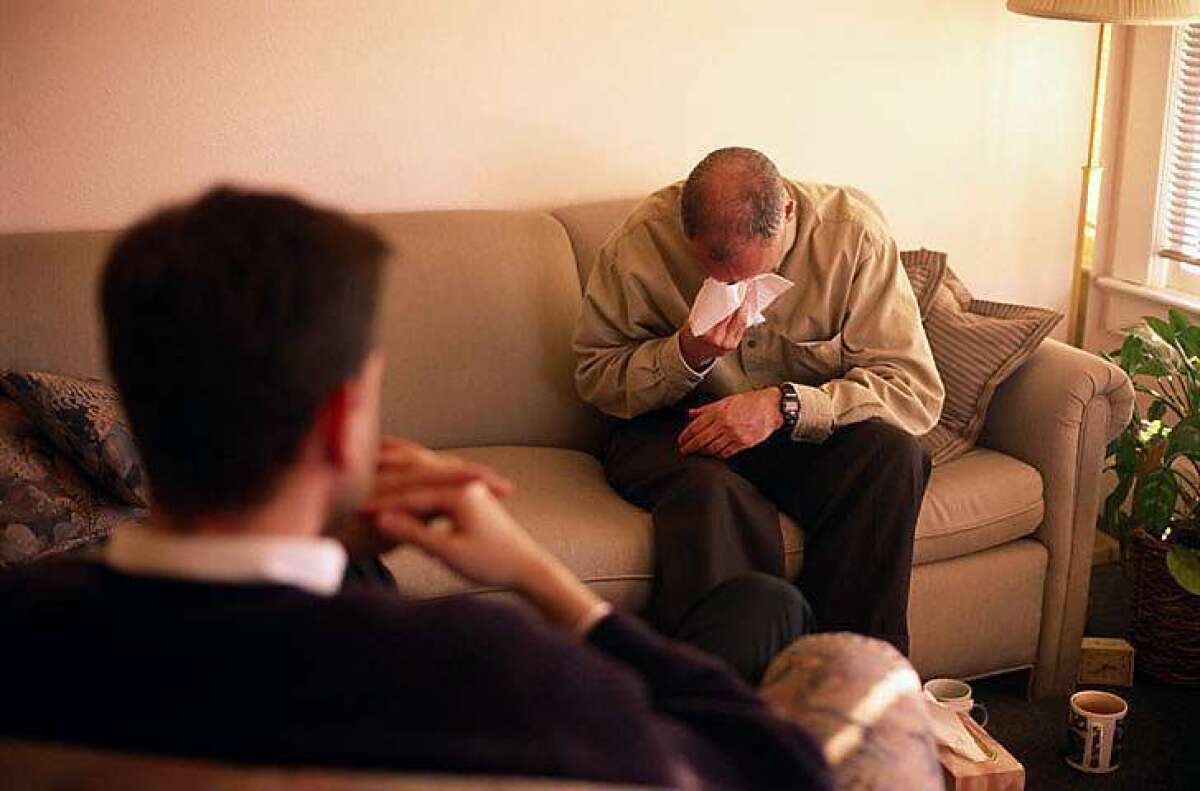Computer systems may be able to aid psychotherapy, study finds

The words and speech patterns that help make a psychotherapist an effective agent of change in a client’s life can be reliably measured by software programs developed by USC engineers, a new study says.
- Share via
Computational analysis and human empathy may not sound like a match made in heaven. But a new study by engineers at USC suggests that machine learning systems can be used to detect, measure and enhance a mental health professional’s empathic response to clients in distress.
That, in turn, could make psychotherapy better — and more widely accessible where it’s most needed.
To doubters, it might even help prove psychotherapy’s worth.
The process of distinguishing an effective therapist from one likely to send clients running for cover is, essentially, review by other humans. Since time immemorial, trained raters have watched a live or recorded therapy session and made note of the gestures, speech patterns and interactions that suggest either that a therapist is connecting to a client and prompting reflection or prompting a defensive response.
That process is necessary to train therapists, maintain their skills and rate the quality of their services. But it’s also “expensive, time consuming and, quite literally, never used in the real world,” said University of Washington psychologist David Atkins, one of the study’s coauthors.
But what if machines could do the job, with software programmed to detect the speech and behavioral patterns of empathy?
USC electrical engineering student Bo Xiao and his doctoral advisor, Shrikanth S. Narayanan, set out to lash together a system that could give therapists — as well as patients and even insurers — real-time feedback on the quality of their services.
Their findings, published last week in the journal PLOS One, suggest that automated systems of speech and pattern recognition “are possible.” And as these systems are further refined, they could provide therapists “near-real-time feedback” via smartphone or tablet to rate and hone their psychotherapeutic skills.
Providers of “talk therapy” have come under increasing pressure in recent years to show that their services are effective in the treatment of a range of emotional ills and mental disorders. Proponents of cognitive behavioral therapy — a brief, structured form of therapy aimed at concrete problem-solving — can point to a wealth of research supporting its effectiveness. And newer neuroimaging studies have shown positive brain changes with some forms of talk therapy.
But for many other forms of talk therapy — including “motivational interviewing,” the anti-addiction treatment largely used in the current study — proof of effectiveness has been harder to come by.
Atkins said that focusing on empathy, the glue that forms the psychotherapeutic relationship and starts the healing, may be key to demonstrating the value of those less-studied forms of talk therapy.
“There are some core common factors” to virtually all psychotherapy, Atkins said. “Empathy would be considered a core counseling technique,” and to the extent that it can be efficiently assessed, measured and improved, most forms of psychotherapy could benefit, he added.
Which raises the question: Can machines help make psychotherapy better? Atkins is optimistic.
“This is an intimate process that is incredibly unique to the person in front of me,” he said. “But if we don’t have some guides, some rules and some best practice guidelines, it’s really the Wild West and anything goes.”
The work was funded by the National Institute on Drug Abuse and the National Institute on Alcohol Abuse and Alcoholism.
Follow me on Twitter @LATMelissaHealy and “like” Los Angeles Times Science & Health on Facebook.




